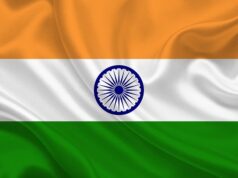They sew our clothes, but they are among the poorest in the world. For days thousands of textile workers in Bangladesh had protested for better pay, and now the government raised the minimum wage.
After days of protests by thousands of textile workers in Bangladesh, the government has announced higher wages. They will be paid retroactively from December, as Trade Minister Tipu Munshi said after a meeting with representatives of trade unions and factory owners. The government now hopes that the ongoing since 6 January protests stop.
It was not until the weekend that police in the capital Dhaka had dispersed thousands of textile workers protesting for better pay with water cannons and tear gas. According to police had to close because of the strikes about 50 factories temporarily.
Minimum wage: 83 euros a month
The workers had demanded, inter alia, with blockades of roads, that a wage increase of the textile workers already decided in 2018 would also be implemented. The Ministry of Labor now said that the statutory minimum salary for young professionals remains at 8,000 taka per month (just under 83 euros) – already in December it had been increased by a good 50 percent. However, a worker with relevant work experience is now to receive 18,257 taka per month instead of the previously valid 17,556 taka. The wages in the intermediate four levels would be adjusted accordingly.
Most important industry
Bangladesh generates about 80 percent of its export income from clothing sales abroad. Last year, clothing worth $ 30 billion (26 billion euros) was shipped. Its many customers include global corporations such as H & M, Primark, Aldi, Walmart and Tesco.
Despite their contribution to the country’s rise to become an important manufacturing base, textile workers in Bangladesh are among the lowest paid in the world. The industry is also notorious for its poor working conditions. In April 2013, the textile factory Rana Plaza collapsed under the weight of several illegally stacked floors. At least 1138 people were killed.



